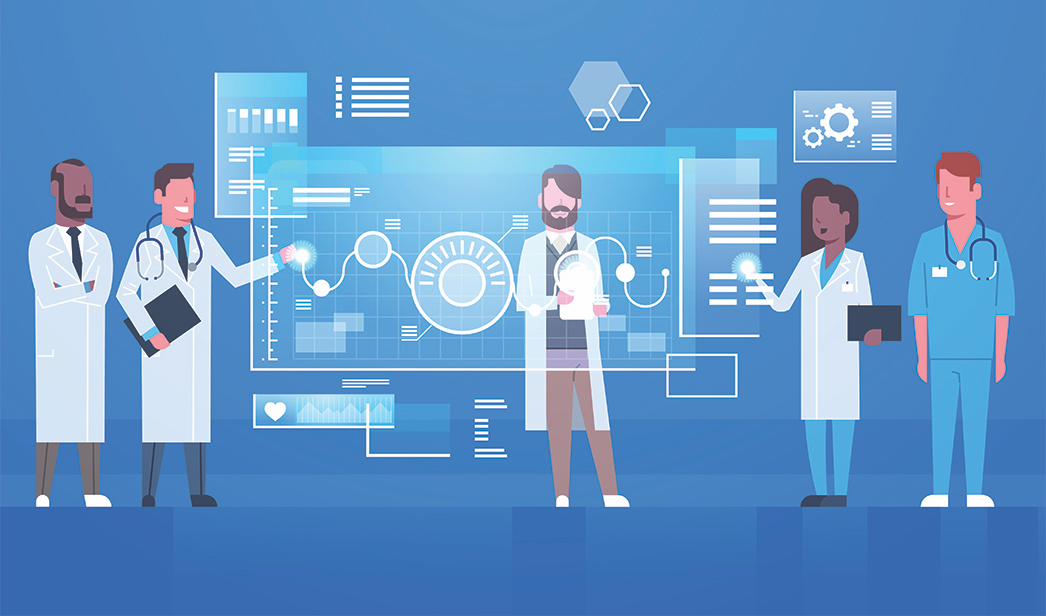Information Technology (IT) has revolutionized various industries, and healthcare is no exception. From electronic health records to telehealth and remote patient monitoring, the impact of IT in healthcare has been transformative. The applications of IT in healthcare are diverse, ranging from health information management to secure data exchange and clinical operations management. In this article, we will explore the growing significance of health information technology, the current state of the global healthcare IT market, key types of health information technology, and the benefits it brings to the healthcare industry.
The Growing Significance of Health Information Technology
Health Information Technology (HIT) plays a vital role in the healthcare industry by facilitating the design, development, implementation, usage, and maintenance of information systems and software solutions. It encompasses a wide range of functions, including health information management, secure data exchange, and the use of software solutions to store, retrieve, share, and analyze healthcare information. The significance of HIT lies in its ability to reduce costs, improve the quality of patient care, and enhance overall efficiency in healthcare organizations.
According to David Blumenthal, “Information is the lifeblood of medicine, and health information technology is destined to be the circulatory system for that information.” With a fair understanding of the applications and role of IT in healthcare, healthcare providers can leverage health IT to improve patient care and experience while reducing costs and errors.
Current State of the Global Healthcare Information Technology Market
The global healthcare IT market has been experiencing significant growth and is estimated to reach a value of $974.5 billion by 2027, with a projected Compound Annual Growth Rate (CAGR) of 19.8%. The market is driven by various factors, including the adoption of e-prescribing, telehealth, mobile health (mHealth), and other healthcare IT solutions. As the healthcare industry continues to embrace digital transformation, the demand for innovative IT solutions is expected to grow rapidly.
Types of Health Information Technology
Health information technology encompasses various types of software systems used by healthcare professionals, care providers, and sometimes patients. These systems help store, share, and analyze health information, enabling better communication and decision-making. Let’s explore some key types of health information technology:
Electronic Health Records (EHR)
Electronic Health Records (EHRs) or electronic medical record (EMR) systems are used to document and store a patient’s medical information, including health reports, diagnoses, allergies, treatment history, and more. EHR systems offer several benefits, such as quick access to patient records, easy data sharing across departments, elimination of paperwork, and reduced medical errors.
Medical Practice Management Systems
Medical practice management software helps healthcare providers manage administrative and clinical aspects of their practices, including appointment scheduling, billing, report generation, insurance verification, and more. By automating routine tasks, this software streamlines workflows, improves efficiency, and allows healthcare professionals to focus more on patient care.
E-prescribing Software
E-prescribing software enables doctors to generate and share prescriptions electronically, eliminating the need for handwritten notes. It improves accuracy, reduces the risk of mix-ups, and allows for easy tracking of a patient’s medication history.
Remote Patient Monitoring Tools
Remote patient monitoring (RPM) tools allow patients to use wearables or mobile medical devices to collect and send health data to healthcare professionals for virtual monitoring and diagnosis. These tools enable better management of chronic conditions, early detection of health issues, and personalized care.
Medical Billing Software
Medical billing software simplifies billing-related workflows, including invoicing, patient billing, insurance claims processing, and financial reporting. It improves accuracy, streamlines processes, and ensures efficient revenue management for healthcare facilities.
Benefits of IT in the Healthcare Industry

Information technology in healthcare offers numerous benefits that enhance patient care and improve overall healthcare outcomes. Let’s explore some key benefits:
Accurate and Accessible Patient Information
Health IT provides healthcare professionals with accurate, actionable, and accessible patient information, enabling them to make informed decisions and deliver personalized care.
Enhanced Communication and Shared Decision-Making
Health IT facilitates communication and shared decision-making between patients and healthcare providers, leading to better collaboration and improved patient outcomes.
Reduced Medical Errors
By maintaining up-to-date and accurate health records, health IT reduces the occurrence of medical errors caused by incomplete or incorrect information, improving patient safety.
Improved Efficiency and Cost Reduction
Healthcare applications and software solutions automate administrative tasks, streamline workflows, and reduce costs, allowing healthcare professionals to focus more on patient care.
Personalized Care and Treatment
With access to comprehensive patient information, healthcare providers can deliver personalized care and treatment plans tailored to each patient’s specific needs.
Faster and Informed Decision-Making
Health IT provides healthcare professionals with real-time access to critical information, enabling faster and more informed decision-making regarding patient care and treatment.
Improved Medication Management
IT solutions in healthcare help improve medication management by facilitating accurate prescription tracking, reducing errors, and ensuring patients have easy access to their medical records.
Building Social Support Networks
Healthcare IT applications can help build social support networks for both patients and healthcare professionals, fostering collaboration and improving overall well-being.
Enhanced Awareness and Education
IT in healthcare improves awareness among patients and the general public about health-related matters, leading to better health outcomes and preventive care.
Top Health Information Technology Trends

The healthcare IT landscape is constantly evolving, with new trends shaping the industry. Let’s explore some of the top trends in health information technology:
Internet of Medical Things (IoMT)
IoMT refers to the network of medical devices and systems that enable remote patient monitoring, telemedicine, and virtual care. From wearable devices to remote monitoring tools, IoMT is revolutionizing patient care and enabling personalized healthcare solutions.
Virtual Reality (VR)
Virtual Reality solutions are being increasingly used in healthcare to provide immersive and personalized experiences. From medical training to pain management and rehabilitation, VR is transforming various aspects of healthcare delivery.
Augmented Reality (AR)
Augmented Reality services are finding applications in medical imaging, medical education, and surgical planning. AR enables medical professionals to visualize complex medical data and improve surgical outcomes.
Artificial Intelligence (AI)
AI is revolutionizing healthcare by improving diagnosis accuracy, predicting outcomes, and reducing medical errors. AI-powered algorithms help analyze vast amounts of clinical data and provide valuable insights for better patient care.
Cloud Adoption in Healthcare
Cloud computing is becoming a vital component of healthcare IT infrastructure. It offers scalability, flexibility, and secure data storage, enabling healthcare organizations to efficiently manage and analyze large volumes of patient data.
Implementing Information Technology in Healthcare: Key Considerations
Implementing health information technology requires careful planning and consideration. Here are some key steps to ensure successful implementation:
-
Identify existing problems and areas for improvement in your healthcare practice or organization.
-
Evaluate different healthcare IT solutions and choose one that addresses your specific needs.
-
Involve stakeholders from various professional groups, including doctors, nurses, and administrative staff, to ensure buy-in and smooth adoption of the new technology.
-
Define a clear business case for implementing health IT and evaluate different providers based on their experience and past healthcare technology solutions.
-
Consider whether to opt for an off-the-shelf standardized solution or a customized healthcare software tailored to your organization’s unique requirements.
-
Prioritize the implementation of functionality that brings maximum benefits to end-users.
-
Develop the necessary infrastructure to support the healthcare technology application, ensuring usability and performance.
-
Provide comprehensive training programs to users to ensure a smooth transition to the new system.
-
Continuously evaluate the progress of technology adoption and address any identified problems in a timely manner.
-
Regularly maintain and update your healthcare software to ensure optimal performance and security.

How Fingent Can Help
Fingent is a leading provider of healthcare information technology consulting and application development services. We specialize in developing customized healthcare software solutions that improve patient care, enhance productivity, and meet the unique needs of healthcare organizations. Our team of experts can help you identify your specific requirements and deliver tailored healthcare IT solutions to drive better outcomes. Contact us to learn more about how Fingent can assist your organization in leveraging the power of information technology in healthcare.

